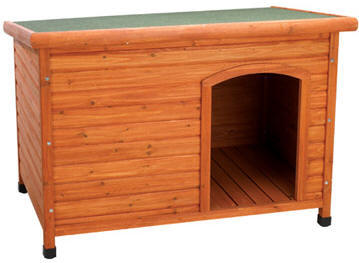Stress
A duck or goose that is stressed can exhibit mild to serious symptoms.
Serious symptoms include: lethargy, weakness, sudden lameness (rare), loss of appetite, weight loss, nausea, vomiting, diarrhea, listlessness, depression, disinterest in normal routines and feathers that remain ruffled open.
Mild symptoms include: reduced egg production as well as slight and harmless behavioral changes. Some birds will suddenly collapse to a “sit down” position during times of stress and will remain still for a few minutes (we see this in geese more frequently than in ducks). Provided the bird stands up again within a few minutes they should be fine provided you remove the stressor.
Symptoms of stress can be identical to symptoms of a serious illness*. If stress is not a factor, a vet trip is in order. However, if something could have recently stressed your duck or goose and brought about the changes, you will need to try to remedy it. For example, if you have put something new into your duck or goose’s pen and they’re not eating, remove that thing from their pen (if you can). If you have introduced a new flock mate, perhaps a dividing fence between them is in order.
*Severe or ongoing symptoms should be monitored very closely especially since ducks and geese will try to hide their illnesses for as long as they can as part of their natural defense against predators. Often, by the time you see symptoms, whatever is ailing them has already escalated (which is why you shouldn't wait to take them to a vet).
Causes of Stress
Environmental Changes
When asked the difference between having pet ducks and pet geese, we always have the same answer. Put something new in a duck pen and the ducks will avoid it for at least three days (and even give you accusatory glances!). Put something new in a goose pen and they will almost immediately come over to investigate.
What does this mean in terms of stress? It means don’t make any grand overnight changes to your duck pen. Instead, changes should be made gradually. Even a different colored water bucket or food dish can stress out a duck. Until they understand that the bowl won’t hurt them, put the old and new food dish out for them in different areas of their pen until they learn that the new color is safe. On a larger scale, don’t overhaul your duck pen in one giant swoop. Change out their house first; then, once they adapt, put in a pond, etc. Fast and large scale changes bring on more stress for your ducks.
When rescuing ducks we are obviously bringing ducks into a new environment, which in and of itself can be quite stressful. How do we put our new guests at ease? Once they are in our quarantine pen for the first time, we try to stay out of it for at least 24 hours UNLESS the bird requires medical attention or some kind of special care. But if the duck or goose is healthy, we give them the space they need to get to know their new enclosure. They can see and hear other ducks and geese off in the distance, which offers further comfort. Solo birds are given a mirror to keep them company.
After 24 hours, we enter their quarantine pen to change out food and water and refresh hay in houses and then quickly leave again. Again, unless there is a health issue, we often wait 48 hours to delouse, de-worm and put on their leg band. After this, for the next two weeks we only enter the pen to change out food and water and to do daily pen upkeep. We keep it quick and simple. At the end of quarantine the new birds are moved to their next pen. This increases their stress level again, so we continue with the same tactics. We only enter their pen at a minimum and with as little disturbance to our new feathered friend as possible—and of course, with treats. Our newer residents let us know when they are ready for a little more interaction (directly associated with the treats!) and we let them lead these interactions. They decide how close they want to get. We do not attempt to pick them up or touch them or push them further than they’re ready to go. Slow but steady is the best way to earn a duck or goose's trust.
Temperature Changes
Ducks and geese also experience a stress increase when temperatures flux suddenly or reach extremes. During these times it is best to avoid any other stressors to prevent compiling. Timing is everything and it’s true for your pet ducks and geese as well. This being said, if your duck or goose is stressed and needs vet care, don’t hesitate to put them in the car and take them there—even if it might cause them some added stress. If you want to take your pet duck to visit your family, on the other hand, you might want to wait for a less stressful time to make the trip.
Parasites
The presence of parasites in your duck or goose can definitely lead to increased stress levels. If there have not been any changes in your bird’s normal routine that could be causing their sudden stress then a vet visit with a fecal sample is a wise idea. Remind them to have the lab check for Coccidia (not all labs will check for it if it isn’t specifically requested).
Illness & Infection
Illness or infection can cause the stress levels you are seeing in your pet. If your duck or goose is running a temperature your vet will likely prescribe antibiotics for 7-14 days (usually Baytril®) to help them get well. Improvement is commonly seen within 2-3 days. If you do not see any improvement during this time, another trip to your vet is in order.
Other...
If your duck or goose is running a normal temperature and the fecal test does not reveal parasites, your vet will likely advise some blood work and x-rays to single out other stress-causing possibilities that range from mild to severe. Some possibilities are: injury, egg-binding, poisoning, disease and cancer (most of these tend to be accompanied by other symptoms).
To avoid additional blood tests down the line that may further stress your duck or goose, you may want to have your vet draw enough blood to check for lead & zinc poisoning to ensure your pet hasn’t swallowed something dangerous.
X-rays and blood tests will often reveal what is stressing out your duck or goose, so that your vet can properly attend to their needs and provide for their future wellness.
Donate a Duck House!
This is your chance to directly improve the lives of our rescued ducks. You can literally put a roof over their heads!
For a single $150.00 donation you can provide a pair of ducks with a much-needed house that will keep them sheltered and cozy for the duration of their stay at our sanctuary. And when they're adopted out, your donated duck house will service the next set of ducks that come to us for help!

To make your
donation even more personal, we will
mount an engraved plate on the front of the
house with your own personalized message
(some space/word restrictions may apply). 
A Gift from the Link Family
In Honor of Jezebel
Each of the donated houses will be custom fitted with a slide-into-place door that will keep chilly breezes off of our feathered friends on cold, winter nights.
To donate a duck house, just click on Donate Now! and enter: "I'M DONATING A DUCK HOUSE!" into the comments field. Please be sure to include a valid email address and phone number, so we can contact you to arrange for your custom engraved name plate!*
*All twelve duck houses will be ordered together in April/May. Once they are assembled in our pens, name plates will be mounted into place. All duck house donors and name plate messages will be acknowledged in one of our upcoming newsletters!
This Fundraiser is officially closed! All 12 Houses have been Donated! THANK YOU!!!If you missed out on donating a Duck House, we will be running a fundraiser for 4 Goose Houses this summer!
March 2012 UPDATE: These "outdoor" dog houses turned out to have VERY poorly constructed roofs and sadly did not last long. The roofs are hollow inside AND the rear overhang doesn't clear enough of the house to prevent interior rotting around the hinges. Within 1 YEAR of owning these houses, the roofs were literally crumbling away. Calls to the company were unproductive who said they were outside of the warranty period.
We have since built our own beautiful replacement roofs of much-improved solid design and with a few inches of overhang to prevent interior rotting around the hinge hardware.
***WE DO NOT RECOMMEND THESE HOUSES!
Snow Removal Volunteers
If you live in Connecticut and can SAFELY get to our sanctuary after snowstorms please consider volunteering. In addition to snow removal, electric fence lines and connectors need to be cleared along with aviary nets, trees and beams. These tasks in addition to changing out heated water buckets, topping off feed bowls and refreshing hay all have to be completed before we can call it a day. If you can be of help, please let us know. It's hard work, but very rewarding!
Snow Damage
As many of you have read on our Facebook page, we lost half of West Wing during January's blizzard. Fully aware of the weight limitations of this structure, we did NOT have any of our animals in this pen at the time. With all the other tasks at hand, we were just not able to clear the snow off of the top of the pen in time to avoid its collapse.
West Wing is our quarantine pen, which consists of two side-by-side pens. While we were able to salvage the left pen, we will not be able to restore the right half until the spring. Plans are underway to build a new roof structure that will support this kind of weight in the future.
The collapse of the right pen of West Wing




